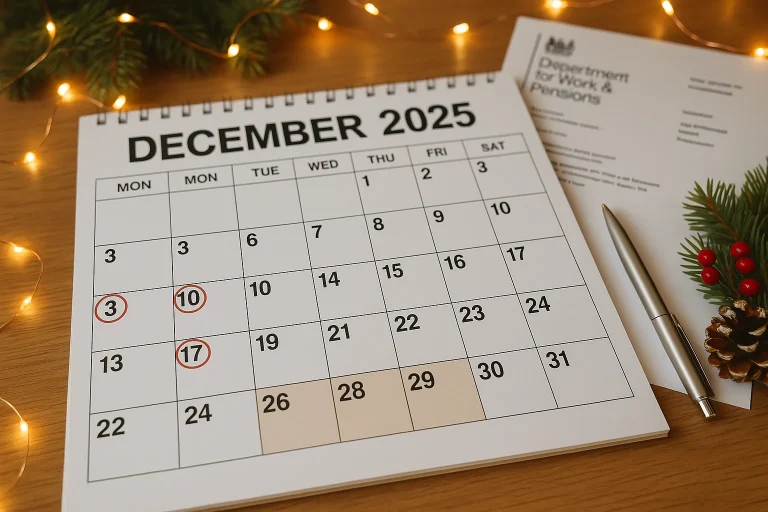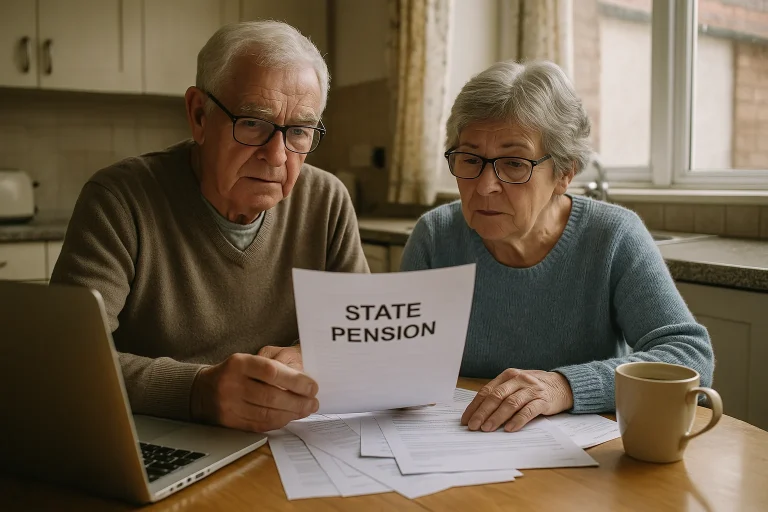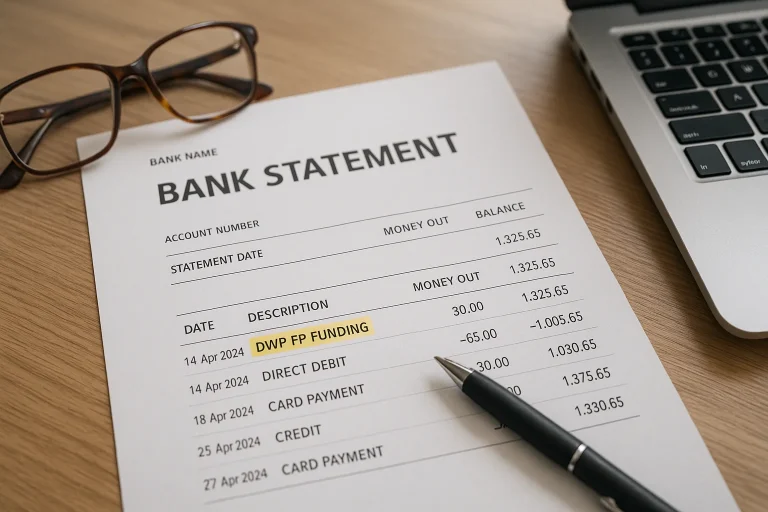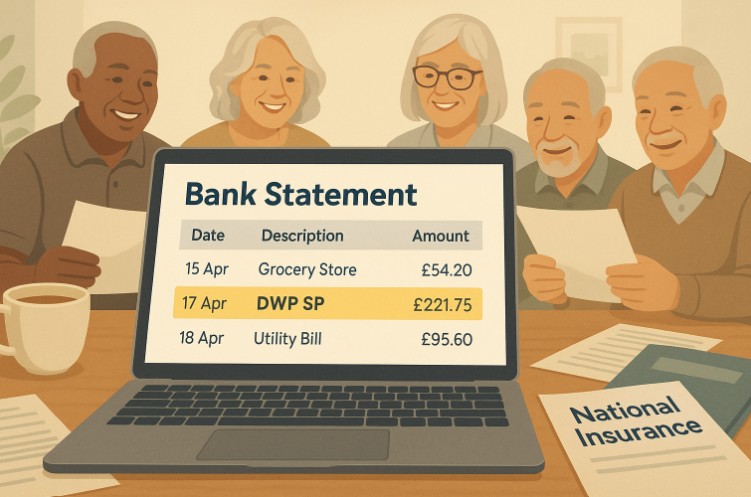The Women Against State Pension Inequality (WASPI) campaign has remained one of the most debated pension issues in the United Kingdom for more than a decade. It centres on the Department for Work and Pensions’ (DWP) handling of changes to the state pension age for women born in the 1950s.
The Parliamentary and Health Service Ombudsman (PHSO) has already ruled that the DWP was guilty of maladministration in how it communicated these pension age changes.
The government has since acknowledged this maladministration and issued an apology. However, as of September 2025, no official compensation scheme has been agreed or announced by the government, despite widespread media speculation and political debate.
This article examines the difference between rumours and confirmed government plans to provide a clear understanding of where things stand for WASPI women today.
What Is The WASPI Campaign And Why Does It Matter In 2025?
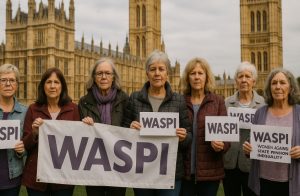
The Women Against State Pension Inequality (WASPI) campaign continues to highlight the difficulties faced by women born in the 1950s who were affected by sudden state pension age increases.
The issue originates from the Pensions Act 1995 and the Pensions Act 2011, which aimed to equalise pension ages between men and women. While the principle of equality was broadly supported, the communication surrounding the changes was poorly handled.
Many women discovered only years later that they would need to wait longer sometimes up to six years to claim their state pension. The lack of adequate notice meant they could not make financial arrangements to cover this gap.
The campaign matters in 2025 because:
- It represents over 3.5 million women across the UK.
- It raises concerns about fairness, communication, and government accountability.
- It has become a major political and social justice issue, still unresolved after years of debate.
Why Has The DWP Acknowledged Maladministration But Not Confirmed Compensation?
The Parliamentary Ombudsman has ruled that the Department for Work and Pensions failed in its duty to communicate pension age changes properly. This failure was described as maladministration.
The government has accepted this finding and apologised, which is a significant acknowledgment. However, it has stopped short of confirming financial compensation.
The reasons for this hesitation include:
- The potential cost of compensation, which could run into billions of pounds.
- Concerns over setting a precedent for other groups affected by government policy changes.
- Ongoing political debates about fairness, affordability, and fiscal responsibility.
The government has positioned the matter as one requiring further consideration by Parliament, leaving affected women frustrated by the lack of progress.
What Rumours About WASPI Compensation Are Circulating In September 2025?
Speculation has been fuelled by media reports, online discussions, and campaign updates. Many women are keen to hear positive news, which has created fertile ground for rumours.
The most common claims include:
- Suggested payouts of £10,000 to £20,000 per woman.
- Reports that payments would begin before the end of 2025.
- Suggestions that Parliament has already approved a scheme in secret.
Despite these claims, ministers have consistently confirmed that no compensation package has been agreed. The government has warned the public to rely only on official sources to avoid being misled.
What Has The Parliamentary Ombudsman Said About WASPI And Pension Changes?
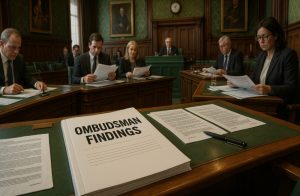
The Ombudsman’s investigation concluded that the DWP had acted unfairly and failed to properly inform women of major changes that affected their retirement plans. It recommended that women be compensated, suggesting a framework based on severity of impact.
The Ombudsman’s recommendations included:
- Payments of between £1,000 and £2,950 per woman.
- Consideration of the financial and emotional hardship caused.
- The expectation that Parliament should design and deliver the scheme.
Although these recommendations have been clear, they are not legally binding. The Ombudsman does not have the power to enforce payments, meaning the final decision rests with the government and Parliament.
How Has The UK Government Officially Responded To WASPI Women So Far?
The government response has been cautious. Officials have apologised for the maladministration and recognised the hardship caused, but no clear plan has followed.
Parliamentary debates have acknowledged the issue repeatedly, but votes on concrete compensation proposals have either been delayed or dismissed. Ministers often cite financial pressures and competing priorities such as health, education, and wider pension reforms.
This has led to accusations that the government is attempting to delay action until the issue loses momentum, although campaigners continue to push back strongly.
What Financial Impact Have WASPI Women Faced Due To State Pension Age Changes?
The financial consequences for affected women have been profound. Many planned for retirement at 60, only to find they had to wait up to six years longer.
The key impacts include:
- Loss of expected pension income for several years.
- Increased reliance on savings, private pensions, or credit.
- Some women forced back into the workforce despite health issues.
- Greater dependence on welfare benefits such as Jobseeker’s Allowance or Universal Credit.
Financial Impact On WASPI Women
| Financial Area | Impact |
| State Pension Income | Loss of £30,000–£50,000 depending on circumstances |
| Employment | Many struggled to re-enter the job market in their 60s |
| Health | Stress and financial hardship worsened physical and mental health |
| Savings | Significant depletion of retirement savings to cover living costs |
The combined effect has been long-term insecurity for many households, with women feeling penalised for decisions beyond their control.
Could A Compensation Scheme Still Be Introduced In The Future?

Despite the lack of progress in 2025, the possibility of compensation remains. Campaigners, MPs, and advocacy groups continue to apply pressure on the government.
Several factors suggest that a scheme could eventually be introduced:
- Cross-party political support for justice for WASPI women.
- Ongoing legal action which could force the government’s hand.
- Strong public backing for compensation.
- The Ombudsman’s clear recommendations creating a moral obligation.
Factors Influencing A Future Compensation Scheme
| Factor | Potential Effect |
| Political Pressure | Could force government to act to avoid reputational damage |
| Legal Challenges | May compel compensation through judicial review or court orders |
| Economic Conditions | Budget constraints may delay or limit payouts |
| Public Opinion | Continued media focus keeps issue high on the agenda |
While no scheme is confirmed, the debate remains active, and affected women are urged to stay informed through credible channels.
How Can WASPI Women Stay Informed And Avoid Misinformation?
Given the level of speculation, it is essential for women to rely on verified sources. The best approaches include:
- Checking updates on the official government website at gov.uk.
- Following statements and reports from the Parliamentary Ombudsman.
- Monitoring updates from the official WASPI campaign organisation.
- Reading reports from reputable UK news outlets rather than relying on social media claims.
By focusing on these sources, women can avoid confusion and ensure they are not misled by unfounded rumours.
Public Reaction And Media Coverage Of WASPI In September 2025

The public reaction has been divided. Many sympathise with the campaigners, recognising the injustice of the situation. For these supporters, compensation is seen as a moral obligation.
Others argue that while maladministration occurred, the costs involved in paying compensation are too high, especially given the current economic climate.
Media coverage reflects this division. Some outlets highlight personal stories of hardship, giving the campaign significant visibility. Others focus on the financial challenges facing the government and the difficulties of creating a fair scheme.
Overall, the issue remains unresolved but continues to attract attention, ensuring that the debate is unlikely to disappear anytime soon.
Conclusion
As of September 2025, the situation remains clear: the government has acknowledged maladministration in the handling of state pension age changes and apologised, but it has not introduced or agreed to any compensation scheme.
The WASPI campaign continues to fight for redress, supported by the Ombudsman’s findings, but the issue rests with Parliament and the government’s willingness to act.
Until an official announcement is made, WASPI women should treat rumours of imminent payments with caution and rely on official sources for updates.
Frequently Asked Questions
What does WASPI stand for and who does it represent?
WASPI stands for Women Against State Pension Inequality. It represents women born in the 1950s who were affected by changes to the state pension age.
Has the UK Government announced any WASPI compensation scheme?
No. As of September 2025, the government has not confirmed any compensation scheme, despite acknowledging maladministration.
How much money could WASPI women potentially receive if compensation is agreed?
The Ombudsman suggested between £1,000 and £2,950 per person, but campaigners are calling for higher payments. No final amount has been approved.
What role does the Parliamentary Ombudsman play in the WASPI case?
The Ombudsman investigates complaints about government departments. It has ruled maladministration occurred and recommended compensation, but it cannot enforce payments.
Why has the issue of WASPI women taken so long to resolve?
The scale of the issue, political disagreements, and the high financial cost have slowed progress, leaving many women waiting years for clarity.
How can affected women check if they qualify for any future scheme?
If a scheme is approved, eligibility details will be published on official government websites and through the WASPI campaign.
Where can WASPI women find reliable updates on compensation news?
The best sources are gov.uk, the Parliamentary Ombudsman’s website, and the official WASPI campaign site (waspi.co.uk).


